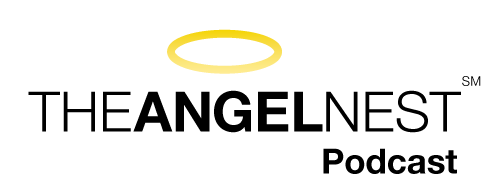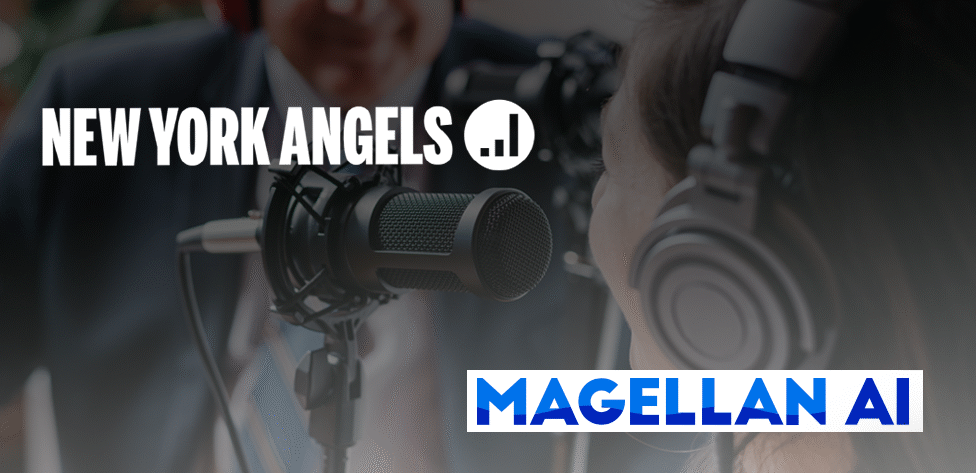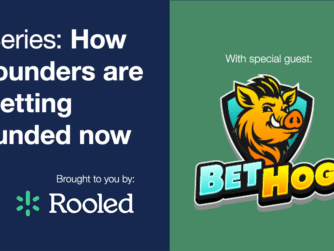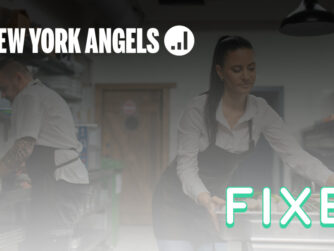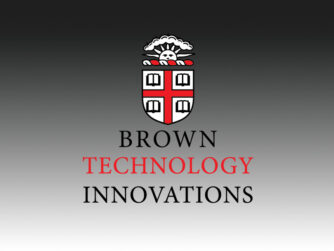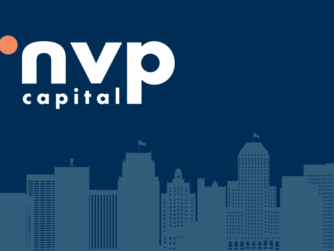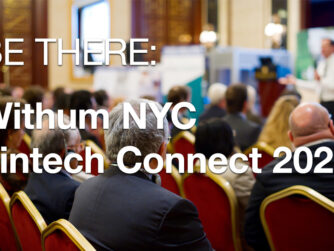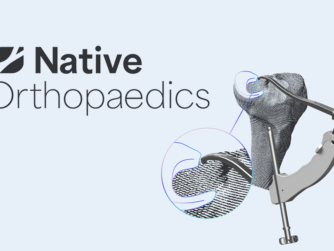Industry: Angel Investing; Podcast Ad Management
Location: New York, NY and Los Angeles, CA
Read the Transcript
This transcript has been AI-generated. Please excuse any typos.
David: Welcome to the New York Angels edition of the Angel Nest, where real angel investors and entrepreneurs partner to build new businesses.
I’m David Hemenway. I’m a five-time founder and a member of the New York Angels, where we fund and mentor great young companies.
Today, we talked to Cameron Hendricks. He’s the co-founder of Magellan AI, which measures podcast advertising and performance. And it tells marketers and producers of podcasts, which of the four-and-a-half million programs out there are actually attracting an audience and who that audience is.
Cameron and his team have grown their revenue by more than times since their seed investment round from the New York Angels, and now they’re tracking attribution to tell advertisers what the ROI is on their advertising dollars.
Great to have Cameron here today, and we’re also joined by New York Angel Michael Costa, who co-led our group’s investment in Magellan. Michael’s a former investment banker for Merrill Lynch. He’s specialized in the media, and he’s now a board member at New York Angels.
A little later, we’ll talk to Michael about the sidecar fund that allows New York Angels to invest even more in some of their companies. And we welcome Bob Peck, a newer New York Angel member. We’ll talk to him with our board chair, Cindy Cook, and learn what it’s like to join the group.
We don’t make or recommend investments at the Angel Nest, and this program is for informational purposes only.
Cameron Hendricks, Michael Kosta, thank you both for joining today.
Cameron and Michael: Thanks for having me. Thank you, David.
David: Cameron, you started out as a banker at Goldman Sachs, so I’m curious how you got into the podcast world.
Cameron: Well, I’ve always been half software engineer, half salesperson, so most of my real jobs have been in sales in some form. But going back years, I was listening to podcasts, writing code. And we actually started out building AI for media sellers – so something completely different outside of the podcast realm – and started working with the team at Wondery who had adopted that product.
And the team at Wondery, when they were onboarding for that product, kind of shared a unique problem that they had uncovered, which was they actually were hiring a team of people overseas just to like listen to podcasts and write down the name of advertisers.
And that was because, you know, the theory being that they were going to have a lot more success selling to advertisers that had already bought in the medium. And, you know, but that struck me as like, hey, it’s seems kind of inefficient.
Maybe there’s an opportunity to do something a little bit more automated.
And so, you know, the AI that we had built for media sellers turned out to be pretty good at going in and identifying podcast ads, which are a little bit different than typical ads.
And so we started actually like almost like a side project at Magellan AI selling effectively a spreadsheet that just like listed out all the advertisers. So every time we would have a new client back in like now, we would make a copy of this spreadsheet and share it with these new customers.
We’ve come a long way since then. But yeah, that was kind of how we got into podcast advertising.
David: Is podcast advertising thought to be more effective than traditional over-the-air advertising?
Cameron:Yeah, I mean, I think one of the real value props and one of the things that makes podcasts uniqueare that there’s often a relationship between like the host and the listener. Podcast is a form where you get to like a little bit more, you know, you get to know like the person that you’re listening to every week or every day.And so a lot of advertisers, especially early on direct response advertisers, found it was really effective to use podcasting as a media where, you know, they could reach customers in a more authentic way by going through and partnering with podcast hosts.
So, yeah, I think there’s like a huge and that’s continued to be true. I think what’s certainly changed is that there are, you know, now even more ways for advertisers to access podcasts, which include working with produced ads and programmatic ads and a whole variety of different like across not just audio, but also video as kind of a hot vehicle for getting to new listeners.
David: And your concept from the beginning was that you would be sort of the Arbitron or the Nielsen for podcasts?
Cameron: Yeah, we were thinking and initially focused around competitive intelligence. So like the early adopters for our product were media sellers who were in the podcast ecosystem. And again, we’re looking to identify advertisers that had already bought podcasts previously. Very quickly, you know, what we were doing caught the attention of certain media buyers in the space. And they were interested in it for a couple other reasons, one of them being ad verification. It turns out, you know, it’s hard to know who’s advertising in the media. It’s also hard to know your own ads are running in some cases because host read ads could be two minutes in length. They could be, you know, 60 seconds, but they could also be long.
I think the longest we picked up was like minutes in length. And it was like a third of a podcast episode. And we were like, this is…
David: Like a podcast infomercial.
Cameron: It did, you know, it seemed like it, but, you know, it was just this host that was really excited about having a new sponsor and really excited about this product. And they just talked and talked about this product.
And so it was legitimately like an 11-minute ad. That’s not what the advertiser bought. They basically got delivered that, but that’s the kind of thing that makes podcasting a little bit special.
David: And that makes it pretty attractive for the advertiser. So, Michael Costa, I remember we looked at a lot of investments in the podcast space. I’m curious what made Magellan stand out to you as the one that you wanted to get involved in?
Michael: Thanks, David. I think that’s a good question. I mean, it really started with the founder and the fact that Cameron had real domain expertise in the space and came across as a person who recognized that there was a problem to be solved.
And then I think the second thing I really liked about it was I saw him as being the Switzerland in a growing podcast market. He was going to supply the picks and axes to measure what was going on in podcasting, and I wasn’t necessarily picking the right content or the right podcaster with my investment dollars.
Yeah, and I remember it seemed like most of the opportunities we saw were dependent on ever higher ad rates in order to succeed. And the way that podcasting was rolling out and just multiplying,
David: That didn’t seem very likely to happen, but Cameron clearly has developed a pretty exciting niche.
Michael: Oh, absolutely. And I come from the legacy media world where I saw companies get completely disintermediated. So this was an opportunity to sort of invest in something that was going to effectively monetize the disintermediation of traditional radio and other broadcast media. Yeah.
David: Cameron, take us through the process of raising money. I think you’ve only raised money once.
Cameron: Yeah, we raised back in 2019, the pre-seed round. We had raised a little bit before that in a convertible note. And, you know, the process was certainly messier. It’s five years later, so it feels great now. But I think the trauma is mostly resolved. It’s not true.
David: I hope we didn’t cause you any of that trouble.
Cameron: No, no, you guys were the best part. No, it was a journey. And so, like, we had decided in that we needed some more resources, started to, like, put together, you know, a pitch deck and talk to investors that might be interested in leading our round.
And we were lucky enough to find Charlie O’Donnell at Brooklyn Bridge Ventures who kind of stepped up to lead our round. And at the same time, you and I had started connecting around. You know, maybe there were ways we could work with New York Angels. And so we kind of went through the process of, you know, pitching across the New York Angels as well as other independent investors and ultimately came the round in June 2019 after starting early that year.
David: Right. So how can angel investors be better partners to companies like Magellan?
Cameron: I mean, I think we’ve had some real interesting ups and downs. We so we were a Silicon Valley Bank customer, for example. And I think one of the things that like stood out to me about just the folks who were part of I feel like the people that have been part of our company, like the investors that have been part of our company have been there with us, partially because they have founding backgrounds. And so they’ve started businesses, they’ve bought businesses, sold businesses. And it was just kind of fun to be able to lean on them during a very unfun time, especially angel investors who have a little bit more firsthand knowledge like that to me is like what makes what makes it worth it. And like the check size isn’t always like the number one thing that matters. It’s like who is going to help you get to the next level.
David: Yeah, and you really need investors who understand your vertical at that point,
right?
Cameron: Yeah, for sure. Media knowledge. Media is really an interesting space. It’s not one that I necessarily grew up in directly. It was one that I kind of came into as a builder. And so having folks who understood the space from that perspective have been really invaluable.
David: How do you see the next couple of years at Magellan in terms of growth and in terms of how you fit in to the whole advertising spectrum?
Cameron: I think what’s been really interesting is that we’ve stayed very focused in podcast advertising. Podcast advertising itself has morphed. So, you know, when we were starting, you know, there was no concept really of like watching a podcast. And now there’s like a whole concept around watching podcasts on YouTube.
And so what’s happened is that as we’ve grown as a business, we’ve done a couple of things. One is we’ve expanded into attribution. So now we’re more of a full service solution for a brand that wants to come in, you know, understand where their competitors are advertising, build a media plan, verify that they got what they paid for and then measure performance all in one platform.
But now we can start doing that for other media as well. Like, again, podcast advertising with, you know, YouTube and video. It’s almost like pulling us in the direction of, you know, more channels and being able to support, you know, measurement outside of just podcast and going into streaming audio and broadcast and YouTube and all kinds of other channels that are adjacent to podcasting.
David: You know, Michael, I remember when we first met Cameron, we were talking about investing in Magellan. One of the questions was, will the podcast market be big enough? That seems like a quaint question now.
Michael: No, absolutely. I think there were, you know, some expectations in terms of how it would grow. I don’t think we ever imagined the kind of dollars that would be spent in terms of attracting talent. And it ended up being really a virtuous cycle of capital chasing creators and, you know, monetization of the year, I think, well beyond what we could have expected at the time.
David: So obviously investors making investments because they want to return. But how much of why you do angel investing is finding opportunities early and being able to get involved? I mean, I know you’ve been very helpful to Cameron in terms of finding creative ways of financing. And, you know, there have been several instances where we all kind of sat around the table and, you know, tried to be helpful.
Mchael: I think the most interesting thing, especially in the New York Angels approach, is that we really are trying to bring to the founder the wisdom of the crowd. We have about 130 members, and, you know, angel investing is not something where you’re going to be intimately involved with the founder every day. That’s the wrong formula.
Where you can be most effective in working with David has been a real godsend in this regard is David’s got a great relationship with Cameron, and he knows the New York Angels, and he knows where various expertise is.
So Cameron was looking at revenue financing. He’s one of our few companies that actually has revenues that can be financed, at least significant enough. And David bounced it off of me, and I knew there was another New York Angel member that actually had funded through revenue financing. And, you know, we put him in touch with Cameron. He was a domain expertise, got a little competition going for the revenue financing that Cameron was looking for, and we added value.
Now, you know, if I was doing this on my own, I wouldn’t have a network to tap. I wouldn’t have the New York Angels database to find out, you know, who is the expert on revenue financing. Very small contribution over the course of five years. But it’s kind of what New York Angels brings that you couldn’t do on your own.
Cameron: Yeah, I would just add to that. The real value is often in, like, the back channel, you know, understanding, like, how things went. It’s easy to get pitched, you know, by multiple banks that will always be, like, there for you. And I think it’s very different when you can actually talk to a founder who’s like done, you know, the thing that exactly that you’re thinking about doing.
And I think that was in this case what Michael was able to do is connect me with that founder who had done the exact thing, the thing that we were doing and figure out how it had gone for them and lessons we could learn from that, which is like very helpful. We’ve continued to like go down the path of like revenue financing to like help support the growth of our business.
David: You’re now a successful founder, Cameron. What’s your advice to founders who might be listening, trying to figure out how they’re going to come pitch New York Angels or other groups or get their businesses off the ground?
Cameron: Yeah, you know, it’s, I think I’m a very practical founder. I tend to like, you know, lean on, you know, really trying to operate efficiently and spending, you know, I think this is like weird, but spending as little as possible, you know, where, where, and I love that.
David: We love that.
Cameron: Well, you know, for a few years there, it seemed like a bad strategy.
And then it like was a very good strategy when, you know, if capital markets changed. I think my view is that, I think you get, well, my general view is oftentimes the best way to, you know, go build a business is to go build a business and go close from revenue and focus on ways you can solve customer problems.
And, you know, I even today have to remind myself to go and just be like, you get kind of caught up in, you know, what is this competitor doing? You know, what is this, you know, what’s happening in the market? And the reality is like the more calls you can have with customers, the more you can actually like make sure you’re solving their problems, the more successful you will ultimately be.
So I know that’s kind of what I ultimately try to drive myself back to even as we continue to grow.
David: You’re still a very sales-driven CEO.
Cameron: I certainly am. I really enjoy talking to customers. It’s been fun to listen to problems and you just have to watch yourself and shift into, there’s a moment where you, you know, talk to a customer and you don’t necessarily do all the things they want you to do. And you say, yeah, we do those things.
But then you shift into like, wait a second, there’s a moment where you pivot into like, Like, okay, now we’re actually just going to market with the product we have and scaling that. And that’s a whole different challenge.
David: And that’s also like a separate and fun thing to spend time on. Great. Cameron Hendricks, founder and CEO of Magellan AI. We wish you continued growth and good luck, of course. We’ll be watching or maybe in this case listening or maybe both.
Cameron: Thank you for having me.
David: So I want to talk to Michael Kostinow about the New York Angels Fund 2024, which is a sidecar fund that actually helps multiply the investments made by the individual NYA members.
Michael, can you give us a little background on the fund and how it fits into our whole mission to support founders?
Michael: Sure. Happy to, David. The Sidecar Fund, as we call it, goes back probably 15 years at New York Angels. The first Sidecar Fund was done in 2007. It’s one of the only sidecar funds that has been completely cashed out. And if you’re an investor in that fund, you got seven times plus your money back. So a real success.
There was some period of time where New York Angel was trying to figure out the right structure of our sidecar funds. And what we really want to do, and this predates me and those to the administrators who thought long and hard about this, is we really want to leverage what we call the wisdom of the crowds or the NYA crowd.
We have about 130 members and we wanted the sidecar fund to reinforce the investment decisions that those individual members make. So about every two years, we offer our members the ability to invest in a sidecar fund.
The sidecar fund in 2015 was about a million and a half. Our investors tend to write checks anywhere from $25,000 and up. And they basically invest in the fund and knowing that the fund will invest if about a dozen New York Angel members decide it’s a worthy investment. So it really is crystallizing the wisdom of the crowd and the domain expertise we have.
And what the fund will do is if those dozen or so members are going to invest, then the fund will invest $1 for every $3 a member invest. So it expands the pool of capital that’s available to the founder. And in addition, when you bring that much more capital, a third more capital to the founder, you can certainly interact with the founder more and perhaps get some better terms for the investor. And usually in that situation, a relationship develops with the investors and we typically, when the fund does invest, typically have a board seat or a board observer seat to continue the relationship.
David: So a bigger capital pool for founders and for investors, it’s a natural diversifier for members of New York Angels.
Michael: Diversity is the real driver of the fund.
David: So speaking of angel investing, you know, I’m curious, you and your career dealt with a lot of very large companies. What made you decide to become an angel investor?
Michael: Well, in dealing with large companies, they were mostly legacy media companies. And the last board seat I had was on a company in the cable TV industry that was getting completely disemediated by the streamers.
So when I came across Angel Investing and the New York startup ecosystem, which is phenomenal, I was immediately attracted to switching sides, if you will, and backing.
David: Over to the winning side, right?
Michael: Yeah, exactly. Hopefully the winning side that was disrupting legacy media. Great.
David: So people ask all the time, you know, what kind of background you need to be an angel investor. And as you said, Michael, one of the strengths of New York Angels is that almost every kind of investor and entrepreneur is represented, right? Founders, scientists, finance folks.
So today I want to talk to Bob Peck. He’s a fairly new member of our group, although he’s jumped in, he’s very active.And I want to ask about what attracted him to NYA and bring in Cindy Cook, our board chair, also, so we can talk about kind of what kinds of investors work really well for New York Angels. Bob, thanks for joining us today. I really appreciate it.
Bob: Yeah, thanks for having me.
David: Yeah. So what got you interested in angel investing?
Bob: So I’ve spent about years or so on Wall Street, of that covering internet equity research, and the last running internet investment banking for platformslike Credit Suisse, Barclays, Wells Fargo, et cetera.
You know, in that experience, I met with a lot of very large companies – the ones you’d know, Amazon, Facebook, Alibaba, et cetera. But covering such a disruptive tech space, we always had to keep a pulse on what was the next disruptor, what was coming next. We spent a lot of our time, whether it be in equity research, talking to some of these up-and-coming companies, what could they be, meeting with Facebook when it was tiny and people didn’t realize how big that ultimately could be, or when this small company in China called Alibaba was going to take down eBay in China.
And so meeting with these disruptors, sort of seeing what they were doing and trying to gauge if they really had a shot. So I’ve always been very interested in that. And the banking side of things, we obviously did that because that was our IPO pipeline. So we were constantly talking to the large companies and their capital structure, but we’d always meet with these smaller companies that were moving through the process and seeing if these companies could one day be IPO candidates or ultimately disrupt some of our larger customers.
So as I thought about my career in the next step, I really wanted to keep that pulse, particularly in technology, particularly in these disruptive companies. I also think it’s just an amazing time right now to be involved with something like New York Angels because there’s such great deal flow that comes through.
And I think you, Michael, were talking about it earlier that relying on the expertise of everybody in the group is very successful, has had great careers and relying on some of their background. Their knowledge, their experience is something that I thought I could leverage
and then hopefully contribute to.
David: Hmm. What surprised you about New York Angels as you settled in?
Bob: You know, I think the biggest thing was, as I started to go to a couple of different meetings and meet with different members and just talk to the members, was the success that all these members have had. Every member was here for a reason.
They had some career, either prior or even concurrent, that was just very successful. They were very smart and quite honestly, very welcoming and engaging. It was a great place to get exposure to that. And then I saw the deal pipeline.
I realized it was one of the only places where I could really get exposure to quality deals that were coming through that I could be interested in investing in.
David: It strikes me that a lot of your former clients are potential acquirers for New York Angel companies. So does that give you a unique perspective as you’re evaluating the pipeline of companies that are coming in for funding?
Bob: It’s great that I have these contacts across these companies because I always rely on them, particularly when a new idea is coming along. And I’m trying to vet, does this make sense to you? What do you think of this? And they’ll give me some color. So I find it very, very helpful.
I think the stage we look at right now, it’s probably premature for these larger companies. But ultimately, down the line, could it be? Absolutely.
David: Right. And as you’re evaluating them, even at an early stage, you’re probably looking for signs that they can grow into that kind of business.
Bob: Yeah. We look for TAMs. We look for moats. The founders are really important. I remember meeting with a young Evan Spiegel of Snapchat and just seeing what he was doing and how that could be a problem for Facebook going forward. And so learning how they were disrupting and seeing the size of the markets they were going after, and if they ultimately had a disruptive technical moat.
David: Right. I want to bring our board chair, Cindy Cook, back in. Cindy, thanks for joining us again.
Cindy: Pleasure.
David: So as you look for New York Angel members, do you take all of this into consideration in terms of what everybody could individually contribute to the group that hopefully, you know, makes for a consistent advantage?
Cindy: Well, I think, as Bob just said, having the range of different interests and backgrounds that people have is really our superpower in terms of being able to look at deals, to be able to understand the landscape, and to be able to then share that with the rest of the group.
And I think finding members who are really interested and have the curiosity and the interest of finding about new things. I mean, you have to have a kind of gene there that you want to hear about new things that are coming and have some imagination on your own to think where they could go.
So I think you want to be able to bring your expertise to bear and to be able to listen to others with expertise. I mean, you have to be like kind of an open person and a curious person for it to really be a great experience. So we look for people like that who are interested in these kind of investments.
I mean, it’s an early stage. So you have to, as I say, have some imagination as to where you think it can go.
David: And how many of the companies you’ve invested in are you involved with? And how much of that is part of the process?
Cindy: I’d say I’m involved with about half the companies that I invested in. Two of them I’m board observers on and others I’m also in frequent contact with, particularly I have a go-to-market orientation, a long marketing background.
So, in terms of helping them on different things, I’m always a resource. And that is one of the things we can do for companies is stay in touch with them and be resources to them through our expertise or through our networks and also for the next level of funding. We are follow-on funders as well as initial funders.
David: So I hear from a lot of founders that it’s tougher to raise money, but I feel like New York Angels, we are very active.
Cindy: We are very active. We are seen as record numbers of companies the last couple of months. We are engaged in diligences across the board of things that come in the door. We’ve gotten active in terms of looking for deal flow across different accelerators and other groups that are seeing investments.
We just did some event for Plug and Play and one for Techstars, and we’ve worked with other angel groups so we can see more things at an early stage and then bring them back to our group. So we’re doing more things in terms of getting out in the ecosystem in a more process-oriented, concerted way. That we can then bring really great deals in. I’d say we’re improving our flow, and that makes investosr more interested in investing. We have better things coming in the door every day. I feel like we’re just raising the bar on an already good flow and then people are more enthusiastic about investing.
David: Now, we’re going to do a segment next month on plug-and-play, but you want to give us a preview of what Plug-and-Play is and how it works?
Cindy: Plug-and-Play sees early-stage companies, and we’ve been working closely with them to get to companies that we think would be at the right stage for New York Angels and other angel groups. We had our second event two weeks ago, where we saw a number of companies and then we have follow-up meetings with them as well.
The first Plug-and-Play event resulted in over $1 million of funding for the companies. So that was a very good result for our first time up at bat.
David: What a great way for founders to scale their pitch.
Cindy: Yes, yes. We went to Plug and Play and said, could you do something early for us?
And they said, well, you know, one angel group, that may not be worth our time. And we said, how about, oh, I don’t know, angel groups. And then we got angel groups together and made it worth their while. So, you know, you have to be part of the conversation and have it be a win-win for both parties.
David: Fabulous. Cindy Cook, Bob Peck, and Michael Costa, thanks so much for joining us today. It was a lot of fun.
Cindy, Bob and Michel: Thank you. Thank you, David.
Remember, we don’t make or recommend investments at the Angel Nest, and this program is for informational purposes only. We produce the Angel Nest with help from Rob Higley and Charles DeMontebello. He’s at the controls of CDM Studios in the famous Art Deco Film Center building just west of Times Square in New York.
Thanks for joining us on this special New York Angels edition.
I’m David Hemenway. Tune in next month for a look at IC 360. They monitor sports gambling for the NFL, Major League Baseball, the PGA Tour, and many other names you’ve definitely heard of. And they’re building a great business doing it. So long until next time.
This edition of The Angel Nest features Cameron Hendrix, co-founder of Magellan AI, the company revolutionizing podcast ad measurement and attribution. Since receiving seed funding from New York Angels, Magellan has grown revenue 8–10x and now helps advertisers understand exactly where their podcast dollars are going.
Also featured: NYA investor Michael Costa shares why Magellan stood out and discusses the group’s 2024 sidecar fund. Bob Peck, a new member and former Wells Fargo investment banking leader, talks about transitioning from big tech to early-stage investing. A must-listen for anyone interested in startups, media, or angel funding.
Learn more about The New York Angels here.
See the amazing podcast ad tech at Magellan AI.
